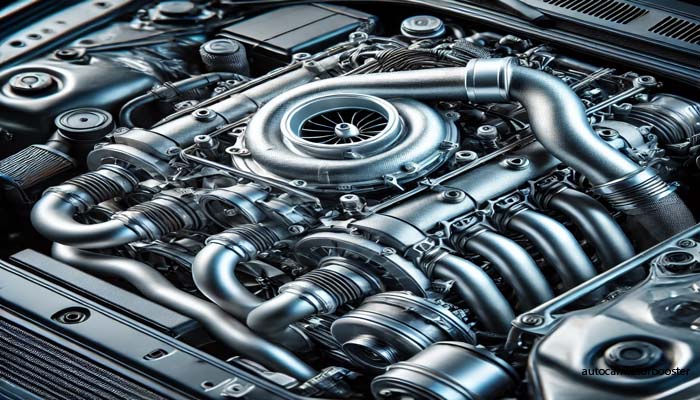
The Importance of Engine Tuning for Boosted Cars
When it comes to getting the most out of your boosted car, one essential factor that often goes overlooked is engine tuning. Whether you’re driving a turbocharged or supercharged vehicle, tuning plays a crucial role in optimizing performance, improving reliability, and ensuring long-term durability. In this article, we’ll explore why engine tuning is so important for boosted cars and what you need to know before diving into the process.
What is Engine Tuning?
Engine tuning refers to the adjustment or modification of the engine’s control parameters to improve performance. For boosted cars, which rely on forced induction systems like turbochargers or superchargers, tuning becomes even more critical. Boosted cars are designed to push more air and fuel into the engine, generating more horsepower and torque, but without the proper tuning, these vehicles may not reach their full potential. Worse, improper tuning can lead to mechanical failures.
Why Engine Tuning Matters for Boosted Cars
1. Maximizing Performance
The primary reason for engine tuning is to maximize your car’s performance. Factory settings are typically conservative, aiming to balance fuel efficiency, emissions, and reliability. However, these settings often limit a car’s true potential. With proper tuning, you can adjust air-fuel ratios, timing, and boost levels to extract more power from the engine. A well-tuned boosted engine will respond better to throttle input, deliver more torque, and provide a smoother driving experience.
2. Improving Fuel Efficiency
A common misconception is that tuning only serves to increase power at the expense of fuel efficiency. However, when done correctly, tuning can actually improve your vehicle’s fuel economy. By optimizing the engine’s parameters, you can ensure that it burns fuel more efficiently. This means less wasted energy and more miles per gallon, particularly when cruising or driving under normal conditions. In essence, you’re getting the best of both worlds: more power and better efficiency.
3. Preventing Engine Damage
One of the biggest risks for boosted cars is engine knock, also known as detonation. This occurs when the air-fuel mixture in the cylinder ignites prematurely, causing a knock or pinging sound. Over time, this can lead to serious damage to your engine’s internal components, such as pistons and valves. Engine tuning can help mitigate this by adjusting ignition timing and air-fuel ratios, ensuring the engine runs smoothly under high boost conditions.
4. Enhancing Durability and Reliability
Without proper tuning, your turbocharged or supercharged engine could be running on settings that may cause excessive wear and tear. By fine-tuning various parameters like boost pressure, fuel delivery, and cooling, you can reduce the strain on key components. This enhances the durability of the engine and helps to avoid costly repairs in the long run.
5. Customized Driving Experience
Every driver is different, and with engine tuning, you can tailor your car’s performance to suit your driving style. Whether you prefer quicker throttle response for spirited driving or smoother acceleration for everyday commuting, tuning gives you the flexibility to customize your vehicle. Many tuners also offer multiple tuning maps, allowing you to switch between performance and economy modes based on your needs.
How Engine Tuning Works
There are two main types of tuning: ECU remapping and piggyback tuning.
- ECU Remapping – This involves modifying the software inside the engine control unit (ECU), which manages the engine’s performance. A professional tuner will adjust various parameters like boost pressure, air-fuel ratios, and ignition timing to optimize performance.
- Piggyback Tuning – This involves installing an external device that works alongside the ECU. It intercepts signals from sensors and modifies them before they reach the ECU, thereby altering the engine’s performance.
Both methods are effective, but ECU remapping is generally considered more precise and customizable.
Common Myths about Engine Tuning
1. Tuning voids your warranty
This is a partial truth. Some manufacturers may void your warranty if they detect aftermarket tuning, but many performance shops offer warranty-safe tuning options. It’s best to consult your dealer and your tuner before making any modifications.
2. Tuning is only for racing
While it’s true that tuning can significantly boost performance for track days and racing, it’s also beneficial for everyday driving. Many people tune their boosted cars for better fuel efficiency, smoother performance, and enhanced reliability.
3. All tuners are the same
Not all tuners are created equal. It’s essential to choose a reputable, experienced tuner who understands the intricacies of your specific engine and its forced induction system.
Conclusion
In conclusion, engine tuning is essential for getting the most out of your boosted car. Whether you’re seeking more power, better fuel efficiency, or improved reliability, tuning provides a way to optimize your vehicle’s performance. However, it’s critical to work with a knowledgeable tuner to avoid potential risks and ensure your car runs smoothly.
FAQs
Q1: What is the primary benefit of engine tuning for boosted cars?
A1: The primary benefit of engine tuning is maximizing performance by adjusting parameters like boost pressure and air-fuel ratios.
Q2: Will tuning my car increase fuel consumption?
A2: Not necessarily. Proper tuning can actually improve fuel efficiency by optimizing how fuel is burned in the engine.
Q3: Can tuning damage my engine?
A3: Poorly executed tuning can cause damage, but when done correctly by a professional, tuning enhances both performance and engine reliability.
Q4: What is the difference between ECU remapping and piggyback tuning?
A4: ECU remapping modifies the software inside the engine control unit, while piggyback tuning involves an external device that alters engine signals.
Q5: Is tuning only for high-performance or racing cars?
A5: No, tuning benefits everyday driving by improving fuel efficiency, throttle response, and engine durability, making it useful for all types of drivers.
If Like This Article Visit Our Website. Collect From Wekiapedia